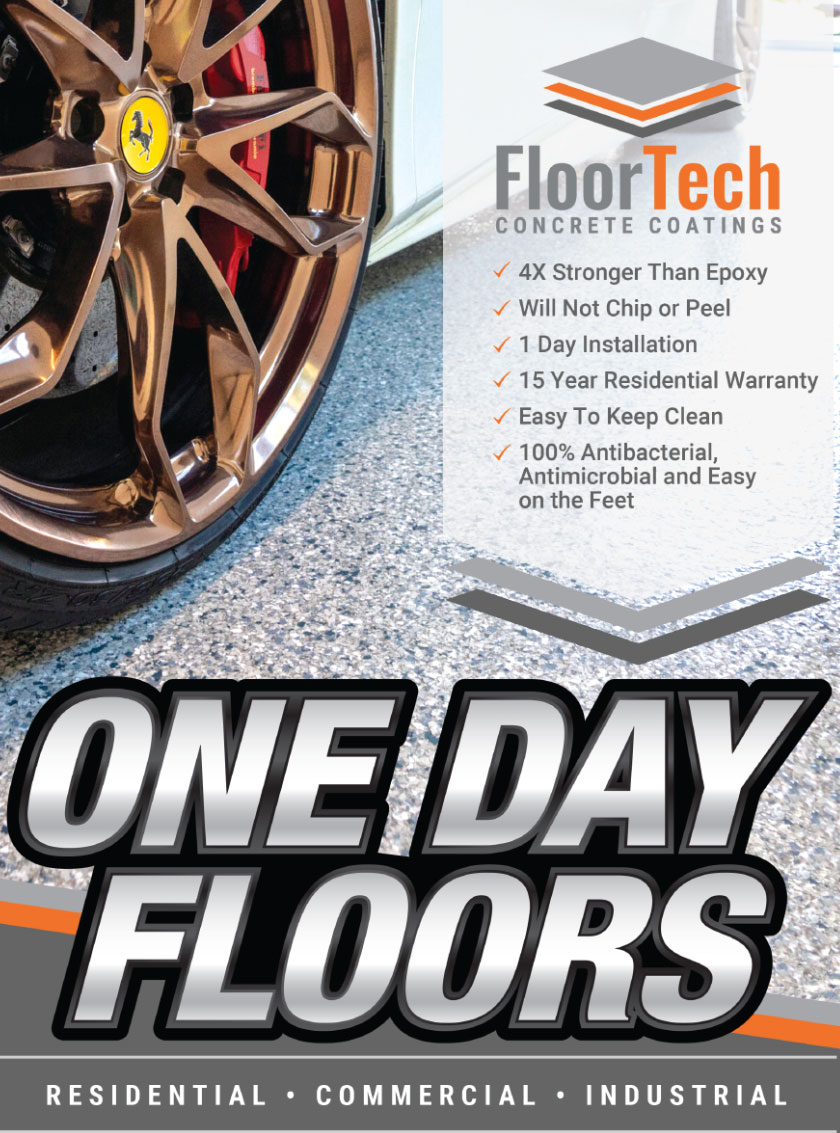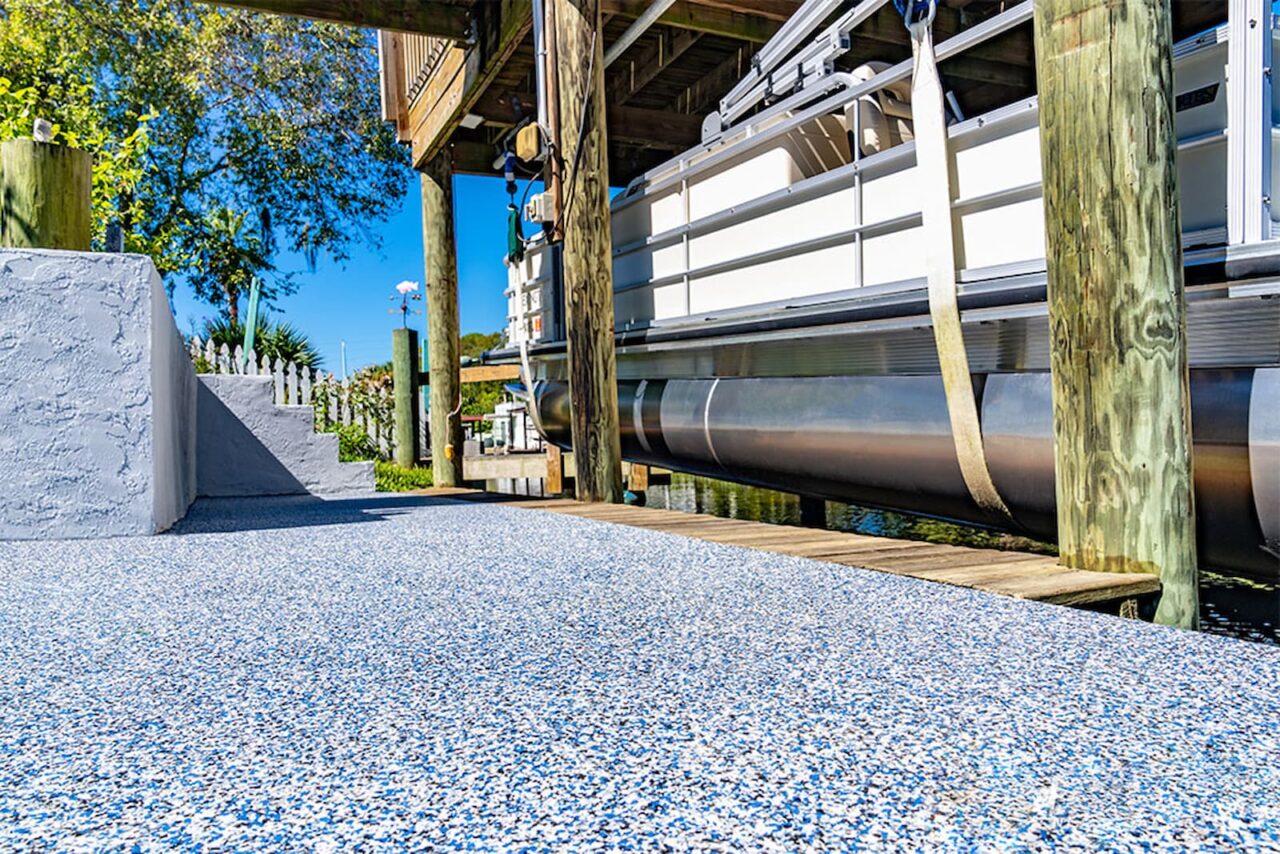Polyurea vs. Epoxy: The Ultimate Guide to Weather-Resilient Concrete Coatings
When it comes to concrete coatings, making the right choice isn’t just about aesthetics—it’s about durability, safety, and saving money in the long run. And if you’re dealing with extreme weather (hello, South Dakota winters!), picking a coating that can handle the elements is absolutely crucial.
At FloorTech Concrete Coatings, we’re all about helping you make informed decisions. That’s why we’re breaking down the differences between two popular options: polyurea and epoxy. Spoiler alert: one of these is a clear winner when it comes to surviving harsh conditions.
Why Climate-Resilient Coatings Matter
Think about it: your concrete surfaces are exposed to all kinds of environmental stressors. Extreme temperatures, UV rays, and humidity can wreak havoc on coatings, causing them to crack, peel, or fade. And let’s not even get started on how a deteriorating surface can be a safety hazard or an eyesore.
Here’s why choosing a climate-resilient coating is so important:
- Longevity: A durable coating saves you from frequent repairs or replacements.
- Safety: Stable coatings reduce accidents caused by chipping or slippery surfaces.
- Cost-Effectiveness: Investing in a high-quality coating means fewer maintenance costs over time.
- Aesthetics: Resilient coatings keep your surfaces looking fresh and vibrant, even under harsh conditions.
Polyurea vs. Epoxy: What’s the Difference?
Before we dive into performance, let’s quickly cover the basics of these two coatings:
- Polyurea: A synthetic polymer that cures quickly, offers incredible flexibility, and is highly resistant to temperature extremes, UV rays, and chemicals.
- Epoxy: A resinous material known for its durability but less flexibility, making it prone to cracking in fluctuating conditions.
While both have their uses, it’s polyurea’s ability to thrive in extreme environments that sets it apart.
How Polyurea Performs in Extreme Climates
Polyurea in Heat: A Summer Superstar
When the temperature soars, polyurea keeps its cool.
- Heat Resistance: Unlike epoxy, which can soften or peel in high heat, polyurea maintains its structure and integrity.
- UV Stability: Its resistance to UV rays prevents fading and discoloration, keeping your surfaces looking vibrant for years.
- Ideal Applications: Perfect for outdoor spaces like parking lots, patios, and industrial areas exposed to constant sun and heat.
Polyurea in Cold: Winter’s Best Friend
Freezing temperatures? No problem.
- Flexibility: Polyurea expands and contracts with the substrate, meaning no cracks or peeling during freeze-thaw cycles.
- Moisture Resistance: It prevents water infiltration, a critical feature for areas prone to freezing and thawing.
- Ideal Applications: Outdoor surfaces in regions with harsh winters or cold storage facilities where low temperatures are constant.
How Epoxy Falls Short in Extreme Climates
Epoxy has its strengths, but it struggles under extreme conditions.
- In Heat: Prolonged exposure to high temperatures can cause epoxy to soften or peel, compromising its durability.
- In Cold: Epoxy becomes brittle and prone to cracking in freezing temperatures, especially during freeze-thaw cycles.
- UV Vulnerability: Epoxy coatings are more likely to fade and discolor when exposed to sunlight.
While epoxy works well indoors or in mild climates, it’s not the best choice for environments with significant temperature fluctuations.
Real-World Examples: Why Polyurea is the Better Choice
Still not convinced? Let’s look at some real-world applications:
- Desert Parking Lot: A polyurea-coated surface in a scorching climate showed no signs of cracking, peeling, or fading even after years of sun exposure.
- Cold Storage Facility: In a freezing environment, polyurea remained flexible and intact, keeping the floor safe and functional.
These examples prove that polyurea isn’t just a coating—it’s a long-term investment in durability and performance.
The Cost-Saving Advantage of Polyurea
While polyurea might have a higher upfront cost, it pays off in the long run:
- Lower Maintenance: Its resilience means fewer repairs and touch-ups over time.
- Extended Lifespan: Polyurea lasts significantly longer than epoxy, reducing replacement costs.
When you factor in the reduced need for maintenance and its superior durability, polyurea becomes the more economical choice.
Why FloorTech Concrete Coatings Recommends Polyurea
At FloorTech, we’ve seen firsthand how polyurea outperforms epoxy in extreme climates. That’s why we trust it for our projects, whether it’s a sun-soaked patio or a garage that faces South Dakota’s freezing winters.
- Expert Installation: Our team knows how to prep and apply polyurea coatings for maximum performance.
- Custom Solutions: We tailor every project to the unique needs of your space and climate.
- Proven Results: From commercial properties to residential garages, we’ve helped countless clients enjoy the benefits of polyurea.
Ready to Weather-Proof Your Surfaces? Let’s Talk!
When it comes to concrete coatings, choosing the right material makes all the difference. Polyurea’s resilience, flexibility, and durability make it the clear choice for extreme climates.
Contact FloorTech Concrete Coatings today to learn how polyurea can protect and enhance your space. Whether it’s hot, cold, or somewhere in between, we’ve got you covered!
Your surfaces deserve a coating that can handle anything Mother Nature throws their way. Let’s make it happen! 🌦️💪







